SUMMARY
This is AI generated summarization, which may have errors. For context, always refer to the full article.
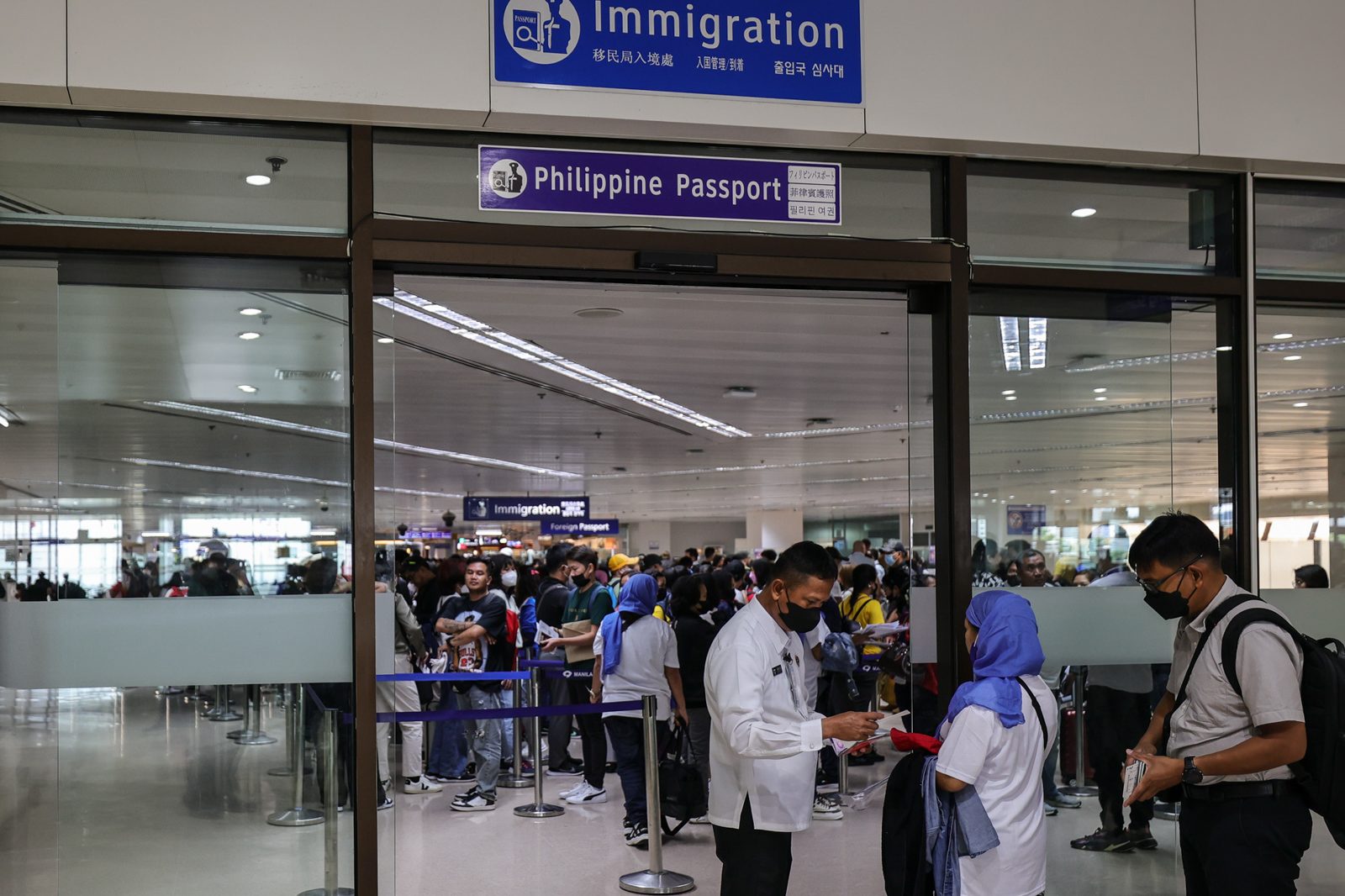
MANILA, Philippines – In a bid to better protect Filipinos from becoming victims of human trafficking, the Inter-Agency Council Against Trafficking (IACAT) on Tuesday, August 22, released revised guidelines on departure requirements for Filipino passengers traveling abroad.
The revised guidelines were approved on August 18 and will take effect on September 3.
In a statement, the IACAT said that the issue of human trafficking is evolving, and that some Filipinos posing as tourists may actually be looking to work overseas.
“It is of paramount importance to emphasize that the revised guidelines have been formulated not to encroach upon the fundamental right to travel, but to serve as a protective bulwark shielding our fellow citizens from the dire perils of human trafficking,” the IACAT said.
In a press briefing on Thursday, August 24, Department of Justice spokesperson Mico Clavano said the departure requirements were not new. The IACAT guidelines are labeled “revised” because the requirements have actually been streamlined and organized into categories of travelers.
The DOJ also clarified that the numerous documents are not absolute requirements but are lists of what immigration officials may ask during further questioning.
Justice Secretary Boying Remulla said the guidelines will mostly apply to first-time travelers since it is from this category that potential victims of trafficking come from – they leave as tourists but some may show indications that they intend to look for employment abroad.
Bureau of Immigration (BI) Commissioner Norman Tansingco likewise said tourists should not worry about the revised guidelines, clarifying that there was “no change in procedures.”
“This is the same procedure we have been previously implementing, but it has been streamlined by the IACAT so it is clearer for Filipinos,” Tansingco said in a statement on Friday, August 25. “There is no new policy for departing tourists being implemented by the BI.”
The BI also gave assurances that the new guidelines wouldn’t be the cause of “unnecessary interviews,” especially for departing passengers with no red flags.
In 2022, the Philippines reported 1,277 victims of sex and labor trafficking. For eight consecutive years, the Philippines has been given a Tier 1 ranking by the United States Trafficking in Persons Report. It means the government has done enough efforts to combat human trafficking.
What are the basic requirements?
There are two levels of inspection for internationally-bound Filipinos, both conducted by an immigration officer (IO).
During primary inspection, passengers must present basic travel documents:
- Passport, valid at least six months from the departure date;
- Valid visa, depending on the destination;
- Boarding pass; and
- Confirmed return or roundtrip ticket, when necessary
The DOJ said more than 95% of travelers are required to show just these basic documents.
If passengers “sufficiently establish [their] declared purpose of travel,” the primary IO clears them for departure.
Those who cannot adequately explain why they are going abroad are referred to secondary inspection. It’s in this secondary inspection that the passengers may be asked to provide additional documents.
Among the common reasons passengers are subject to further questioning are their inability to show proof of financial capacity, history of having stayed abroad as a tourist for over six months, or having a record of misrepresentation of travel information, among others.
The only time an inspection may result in travel deferment is when passengers are found to have fraudulent travel documents or refuse to submit to inspection in the first place.
In either case, the primary IO will inform the traveler of the grounds for their departure deferment or referral to secondary inspection.
The IO in the secondary inspection will be more thorough with the interview and document examinations. Secondary inspections must not exceed 15 minutes. Extensions of this period are only for extraordinary circumstances.
What supporting documents can be presented?
There are other documents a traveler may need to show to their IOs. These will will vary, depending on travel purpose, age, and other details.
Tourists
- Self-funded travels
- Proof of accommodation
- Document showing financial capacity or source of income
- Proof of employment
- Sponsored travels
- Sponsored by 1st degree relatives (spouse, parents, or children) abroad
- Original Philippine Statistics Authority (PSA)-issued birth or marriage certificate
- Confirmed roundtrip ticket
- Copies of sponsor’s:
- Valid passport
- Valid work visa/permit or an equivalent document
- Sponsored by other relatives abroad
- Notarized original Affidavit of Support and Guarantee (AOSG)
- Confirmed roundtrip ticket
- Original PSA-issued birth or marriage certificate
- Sponsored by an unrelated foreign national
- Notarized original AOSG
- Substantial proof of relationship
- Confirmed roundtrip
- If a judicial entry, sponsor’s registration papers
- Traveling with an unrelated local sponsor
- Notarized original AOSG
- Substantial proof of relationship
- Copy of sponsor’s return ticket
- Sponsored by 1st degree relatives (spouse, parents, or children) abroad
Overseas Filipino Workers (OFWs)
- OFWs departing for the first time
- Overseas employment certificate (OEC), or OFW Clearance issued by the Department of Migrant Workers (DMW)
- Valid and appropriate employment visa, work permit, or any equivalent document
- Employment contract
- Visa Usage Undertaking, or Manpower Request specifying visa usage approved or verified by the DMW or Migrant Workers Office (MWO), if applicable
- Balik-Manggagawa (BM)
- Valid and appropriate employment visa, work permit, or any equivalent document
- OFW Clearance, OEC issued on-site by MWO or Migrant Workers Airport Assistance Center (DMW-MWAAC), or Online BM OEC Exemption, or manually issued OEC
- Proof of employment, as necessary
- Direct hires
- OEC, e-receipt, or valid OFW Clearance, and
- Valid and appropriate employment visa, work permit, or any equivalent document
OFWs traveling to other countries apart from the Philippines while they are on vacation will be treated as tourists if they plan to come back to the Philippines before returning to their host countries. If the OFW is touring in another country, and then going straight to their jobs in their host country, they must present an OEC.
The following OFWs are required to have special travel exit clearances instead of an OEC:
- Locally employed seafarers or conduction crew who will be manning a Philippine registered ship’s conduction from a foreign port to the Philippines
- Seafarers who will undergo orientation, or other pre-employment procedures, as the foreign employer (accredited by a licensed local manning agency) prescribes
- Emergency change crew for Philippine registered vessels docked in international ports
An OFW will be endorsed to the DMW-MWAAC for further inspection if there are issues with the worker’s OEC, or the OFW has incomplete or questionable documents.
While it is not mentioned in the IACAT’s guidelines, the DMW in July piloted the OFW Pass, the digital alternative to the OEC. These should be accepted at immigration counters instead of OECs.
Minors
- With married parents, while the mother is accompanying
- Original Philippine Statistics Authority (PSA)-issued birth certificate or report of birth
- With married parents, while the mother is not accompanying
- Original PSA-issued birth certificate or report of birth
- Original PSA-issued marriage certificate
- Minors Subject of Adoption
- Adopted minors with an Order of Adoption Pending New PSA-issued Birth Certificate
- National Authority for Child Care (NACC)-issued Travel Authority for adopted minor and the adoptive parent/s
- With prospective adoptive parent/s pending domestic adoption proceedings
- Pending NACC proceedings
- DSWD Travel Clearance Certificate
- Pending in court
- Manifestation or notice of intended travel filed at least seven (7) calendar days before the intended date of travel, duly received by the Court where the case is pending
- Pending NACC proceedings
- With prospective adoptive parent/s pending inter-country adoption proceedings
- NACC-issued Travel Authority for the prospective adoptive parent/s
- NACC-issued Travel Clearance Certificate for Adoptee
- Commission on Filipinos Overseas (CFO)-issued Clearance
- Adopted minors with an Order of Adoption Pending New PSA-issued Birth Certificate
The following are scenarios where travel will require Department of Social Welfare and Development (DSWD) Certificates of Clearance or Exemption:
- DSWD Travel Clearance Certificate (TCC), if:
- The parents are unmarried and the minor’s mother is not traveling
- The minor is accompanied by anyone other than their parents
- The passenger is over 18 but unable to fully care or protect themselves because of a physical or mental disability or condition
- The minor is above 13 years old and traveling alone (minors below 13 are prohibited from traveling alone)
- DSWD Certificate of Exemption from TCC, if:
- The parents are unmarried and the minor is traveling with their biological father who has sole parental authority or legal custody over them
- The companion is their legal guardian
- Orphans of married parents traveling with substitute parent/s
- Orphans of non-married parents and traveling with substitute parent/s or closest maternal relative
OFW relatives, students, volunteers, and more
- Dependent family members joining an OFW at the host country
- Valid dependent visa or any equivalent document, and
- Copies of the OFW’s valid visa and OEC, e-receipt, or OFW clearance
- Students under the International Student Affairs Program or Student Internship Abroad Program of the Commission on Higher Education (CHED)
- CHED endorsement
- Students or scholars
- Acceptance letter from the school or institution abroad
- Duly notarized affidavit executed by the student or scholar indicating the educational institution, and the duration of the course or program of study
- Confirmed return or roundtrip ticket consistent with the program duration, if practicable
- Proof of financial capacity or scholarship
- Endorsement from the National Commission on Muslim Filipinos (NCMF) for Arabic language scholars, if applicable
- Certification from the school division superintendent for basic education students under an international exchange program, or joining a competition abroad
- Minors under this category also need a DSWD Travel Clearance Certificate
- Passengers with prospective employers abroad
- Confirmed return or roundtrip ticket consistent with travel duration
- Documents relevant to the purpose of travel, and
- Duly notarized affidavit executed by the passenger indicating the purpose and duration of travel
- Passengers traveling abroad for compassionate or humanitarian visit to an overseas Filipino
- Certification from the DMW or the Department of Foreign Affairs specifying the purpose of travel
- Passengers traveling for company transfers or trainings
- Intra-company transferees
- Proof of local employment, as certified by the Department of Labor and Employment (DOLE)
- Secondment agreement between the local company and foreign host company, as necessary
- Intra- or inter-company trainees
- Proof of local employment, as certified by the DOLE, and
- Traineeship agreement authenticated by the Philippine embassy or consulate where the training will be conducted, as necessary
- Intra-company transferees
- Volunteer workers
- Endorsement from the Philippine National Volunteer Service Coordinating Agency
- Hajj pilgrims to Mecca
- Endorsement or list of pilgrims from the NCMF
- Donor traveling for organ donation or transplantation
- Department of Health clearance approving the organ donation or transplantation
The following are passengers who may be required to present a CFO clearance:
- Filipino spouse, fiancé/e, or partner (described as someone who is in a “genuine” heterosexual or same-sex relationship) of a foreign national, with an immigrant, resident, spouse, long-term, partner, prospective marriage, family reunification visa, or other similar visas
- First-time Filipino emigrants and resident visa holders registering with the CFO for the first time
- J1 visa holders, or exchange visitors bound for the United States
- Au Pair visa holders
Trainees for skills enhancement
- Government-endorsed trainees
- Trainees of the Department of Agriculture – Agricultural Training Institute (DA-ATI)
- DA-ATI endorsement
- Agro-studies Technical Education and Skills Development Authority (TESDA) trainees
- TESDA endorsement
- Other government-endorsed trainees
- Endorsement from the concerned government agency
- Trainees of the Department of Agriculture – Agricultural Training Institute (DA-ATI)
- Non-government endorsed trainees
- Confirmed roundtrip ticket for programs six months or below
- Traineeship contract duly authenticated by the Philippine embassy
- Duly notarized affidavit executed by the trainee indicating the training institution and training duration
Other passengers, and when you’re identified as potentially trafficked
Travelers who do not fall under the specified categories will undergo the required immigration inspection, and show documents that sufficiently establish their purpose of travel.
Passengers who have been determined to be potentially trafficked during secondary inspection will be deferred for departure, and turned over to the IACAT Anti-Trafficking Task Force (ATTF) at the port, together with their passports and supporting documents.
The IACAT will turn over documents to the appropriate law enforcement agency, or the DFA Office of Consular Affairs. Passengers may also file civil, criminal, or administrative cases.
Using cellphones, cameras, recording devices, or any similar electronic devices is strictly prohibited in the immigration area, unless authorized. Documents, records, and data gathered during inspection are confidential. – Michelle Abad, Francessca Abalos, Patricia Kahanap/Rappler.com
Francessca Abalos is a Rappler volunteer studying at the Ateneo de Manila University.
Add a comment
How does this make you feel?
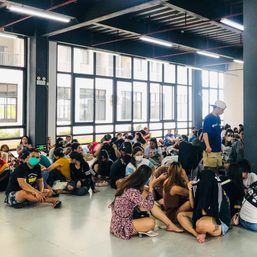
![[Free to Disagree] Arrest Quiboloy!](https://www.rappler.com/tachyon/2024/03/Free-to-disagree-arrest-quiboloy-March-11-2024-1.jpg?resize=257%2C257&crop_strategy=attention)
![[EDITORIAL] Kalaban mo ang mga senador na protektor ni Quiboloy](https://www.rappler.com/tachyon/2024/03/animated-quiboloy-kojc-senate-carousel.jpg?resize=257%2C257&crop=365px%2C0px%2C720px%2C720px)
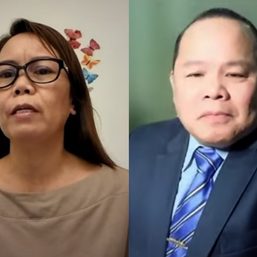
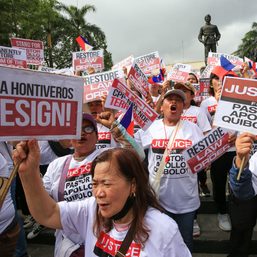

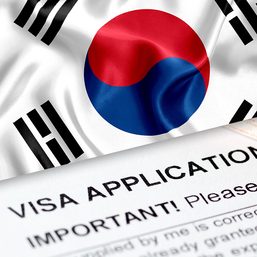
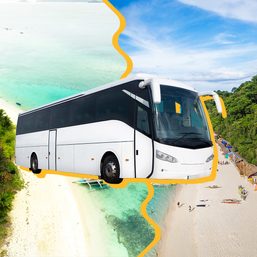

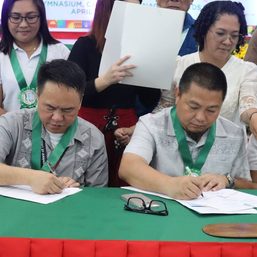
There are no comments yet. Add your comment to start the conversation.